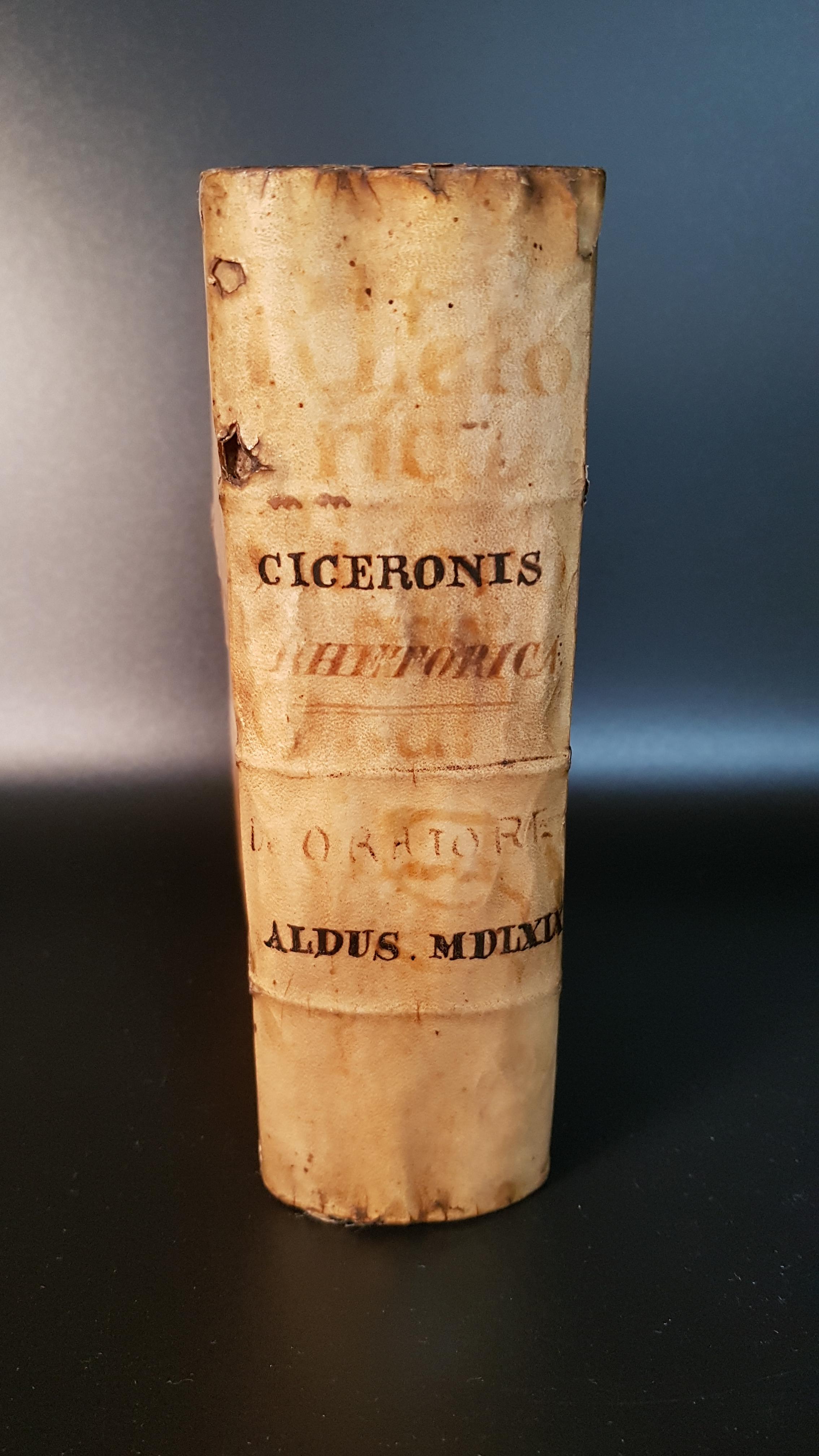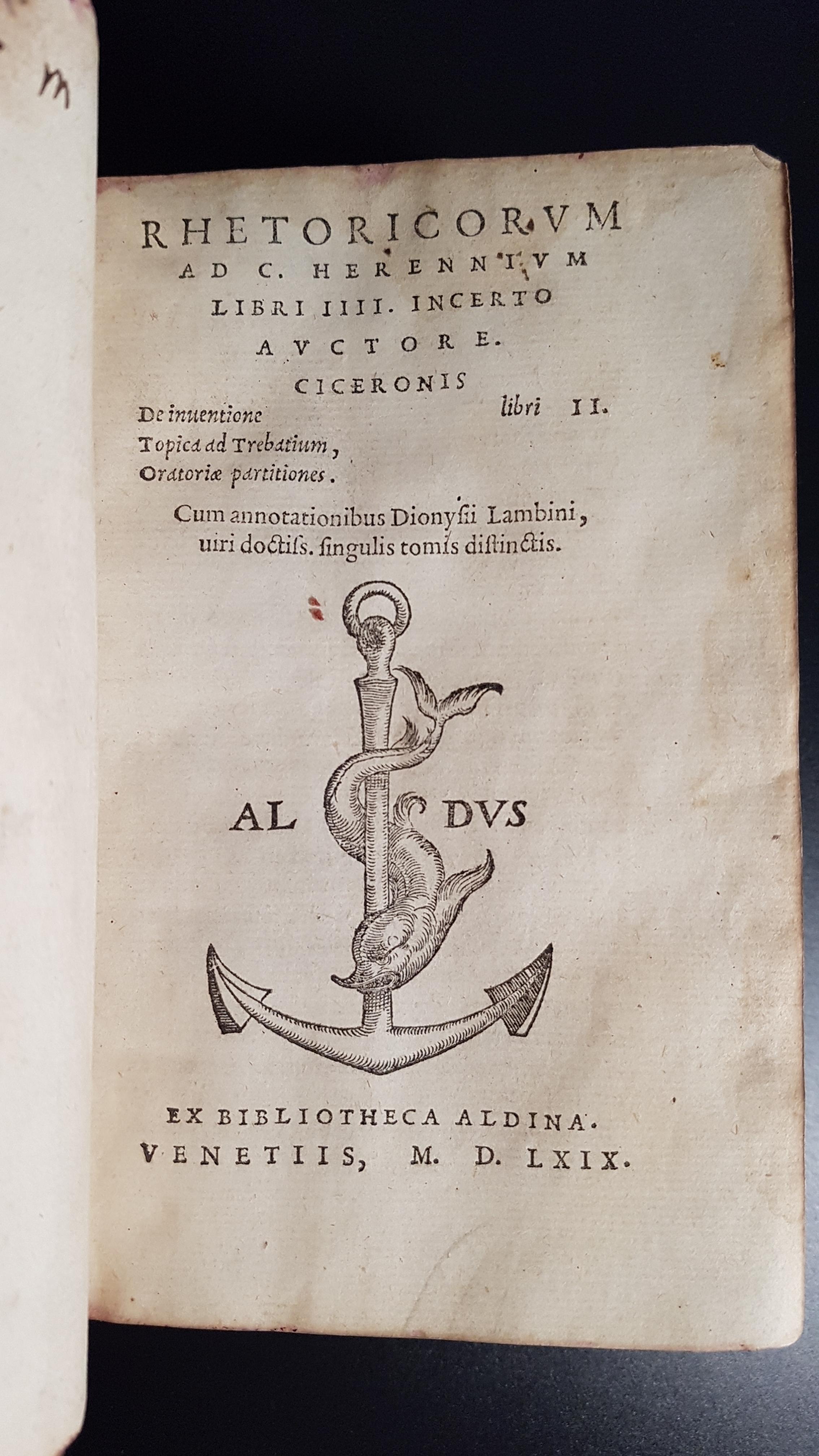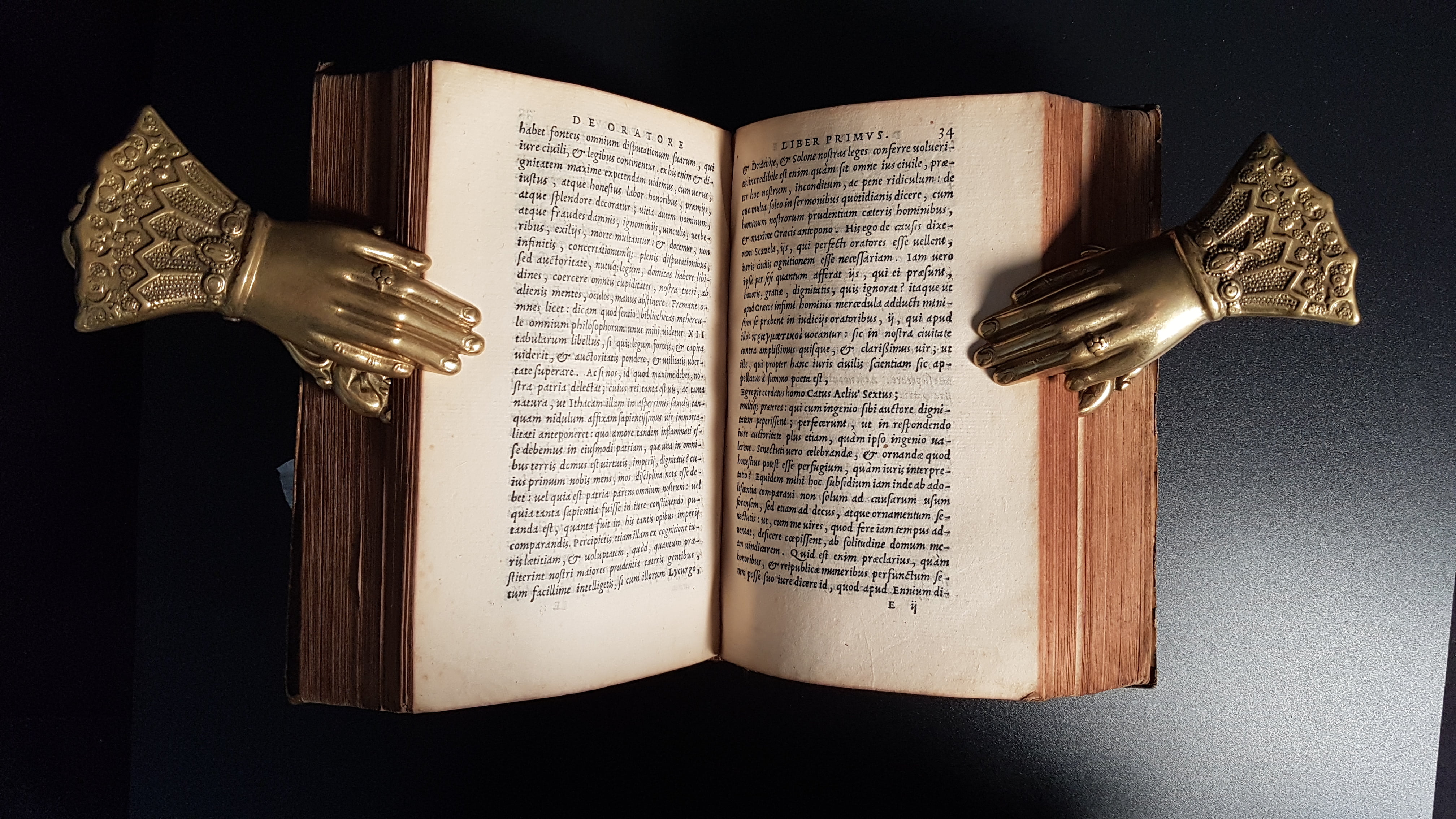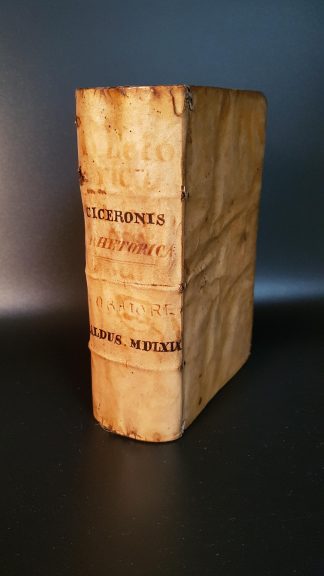CICERO, Marcus Tullius, [LAMBIN, Denis.]
RARE
Rhetoricorum ad C. Herennium libri IIII (with) De Oratore libri III… Cum annotationibus Dionysii Lambini
Venice, ex Bibliotheca Aldina, 1569£3,250.00
8vo. 2 works in 1 vol., each in 2 parts with separate t-p. ff. (xxiv) 184, 38 (ii); 240, 48. Italic letter, little Roman. Woodcut Aldine device to all four t-ps, penultimate of first work and last of second. Light waterstaining to upper and outer margin of first and last few ll., intermittent slight marginal foxing or toning, lower outer blank corner of P3 torn. A good copy in slightly later vellum, superimposed on original vellum, traces of ties, title inked to spine, small loss to lower cover, C19 bookplate of John Wyndham Bruce to front pastedown, inscription ‘Ad usum D. Mauri Archinti’ to recto and casemark to verso of fep.
Very good copy of two Aldine editions, intended as companion volumes, of Cicero’s rhetorical works, here issued for the first time with a commentary by the humanist Denis Lambin. Despite the imprimatur ‘Ex Bibliotheca Aldina’, these works were printed by the Torresani, heirs to Andrea, Aldus’s ‘socerus’ and associate; these were also their first Ciceronian editions. The Torresani editions have been praised as ‘handsome, almost all rare, and…kept in much esteem’ (Renouard, ‘Notice’, 72). Due to their excellence, they were either attributed to Aldus and his heirs or mistaken for counterfeits even by notable bibliographers until the mid-C19 (Bernoni, ‘Dei Torresani’, 128). One of the most influential figures of classical antiquity, Marcus Tullius Cicero (106-43BC) put his legal skills to the service of politics with speeches which became landmarks of forensic oratory. Defined by Quintilian as ‘eloquence itself’, his copious prose production occupied a fundamental place in medieval syllabi. Subsequent to the rediscovery of further texts, including the letters, by scholars like Petrarch, Cicero contributed to forging the Latin style of the Renaissance and its ideas on political theory (e.g., Republicanism), rhetoric (e.g., the principles of argument, eloquence and invention) and philosophy (e.g., Stoicism). The first work in this sammelband includes his greatly influential ‘ad Herennium’, by then presented as probably spurious (‘incerto auctore’), as well as ‘De inventione’ and ‘Topica’ (how to construct arguments in structure and content), and ‘De partitione oratoria’ on oratory techniques. The second work begins with ‘De oratore’, an immensely influential analysis of how a good orator should construct persuasive arguments which should however be driven by sound ethical principles. There follow ‘Orator’, a description of the perfect orator integrating observations in previous works, and ‘De claris oratoribus’, a history of eloquence through individual figures including Pericles and Solon. Denis Lambin’s commentaries—to ‘Rhetorica’ and to the first book of ‘De oratore’—appended to each part bear a separate t-p, pagination and collation, but were not intended for separate publication. Lambin (1520-72) was a French humanist who taught Latin and Greek at the Collège de France. He was praised for his philological precision but also criticised for being ‘too concerned with trivialities of language at the expense not only of philosophical issues but also of practical matters of politics and individual conduct’ (Salmon, ‘Renaissance and Revolt’, 50).
I) Renouard 207:13; BM STC It., p. 176; Ahmanson-Murphy 579. Not in Brunet.II) Renouard 207:14; BM STC It., p. 176; Ahmanson-Murphy 580. Not in Brunet. Adams C1689, both works, one complete copy only.In stock







